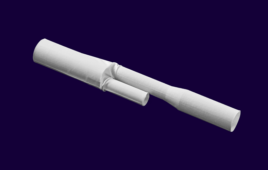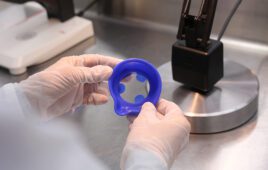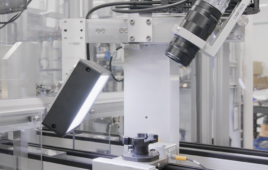 What initially attracted you to Med tech and how has your perspective on the industry evolved over your career?
What initially attracted you to Med tech and how has your perspective on the industry evolved over your career?
I think a lot of people get into Med tech because the connection between your work and its positive influence on people is very direct. It’s work that has purpose, and you can see your impact clearly – that is something that holds true for me as well.
I also find it intellectually interesting. I enjoyed biology and math in school, but spent my freshman year of college taking a variety of courses because I really wasn’t certain what direction I wanted to go in. I took an intro to biomedical engineering class that made me look forward to the time I would leave school and enter the industry, which is a feeling I hadn’t gotten from any other course before.
I’ve found that this is a field where you can have a lifetime of learning because technology is always changing and improving over time. There’s such a diversity of technology across different clinical spaces that there’s always something new to learn.
Has your perspective on the medtech industry changed over your time working in the field or over your career in general?
My love for the industry and my belief in the industry really hasn’t changed. I’ve seen some incredible technologies that are legitimately life changing make it successfully to trials and to market and I’m proud to be a part of that.
I would say that I’ve become more aware of all of the challenges that go into getting a device to market in addition to the engineering piece of it. From fundraising to the technology development itself, to navigating the regulatory process, there’s a lot that goes into device development and it takes a team of people that are well-versed in every aspect of the process to make a device concept successful.
As a seasoned professional, how do you envision the future of Med tech and what emerging technologies or trends do you think will have the most significant impact?
I think that the trends we’re seeing in this industry are similar to the technology trends you see in other industries. I see a trend towards miniaturization – smaller cameras, smaller sensors, smaller delivery systems. I think we will see more wearables and devices that have user interaction, like things that will give patients better access to their own data. I’m seeing an emphasis on robotic surgery and the ability to do things remotely, whether it’s operating instruments remotely or directing a case remotely. The world is getting smaller in that way, and there’s more of a drive towards being able to do things virtually.
There’s a continued push towards overcoming access and delivery challenges to make minimally invasive and transcatheter technologies go further.
I also think we’re seeing more with the idea of a smart device, something that a user could interact with more, whether it’s reading off their data or having input into the way it works for them, or customizing a device for the patient.
As technology continues to advance rapidly, how do you think medtech engineers can stay ahead of the curve and ensure they are equipped with the necessary skills and knowledge?
When you sign up to participate in this field, you’re signing up for a lifetime of learning, so it’s staying apprised of the latest technology, going to conferences, reading publications. Making sure you pay attention to industry trends, to what startups are doing, and not letting your information get stale.
At the company level, I think it’s hiring top talent with a genuine curiosity for the technology and its implementation. If you compile a team of passionate learners who follow the latest trends out of sincere interest, you’ll be at the forefront of the innovation curve.




